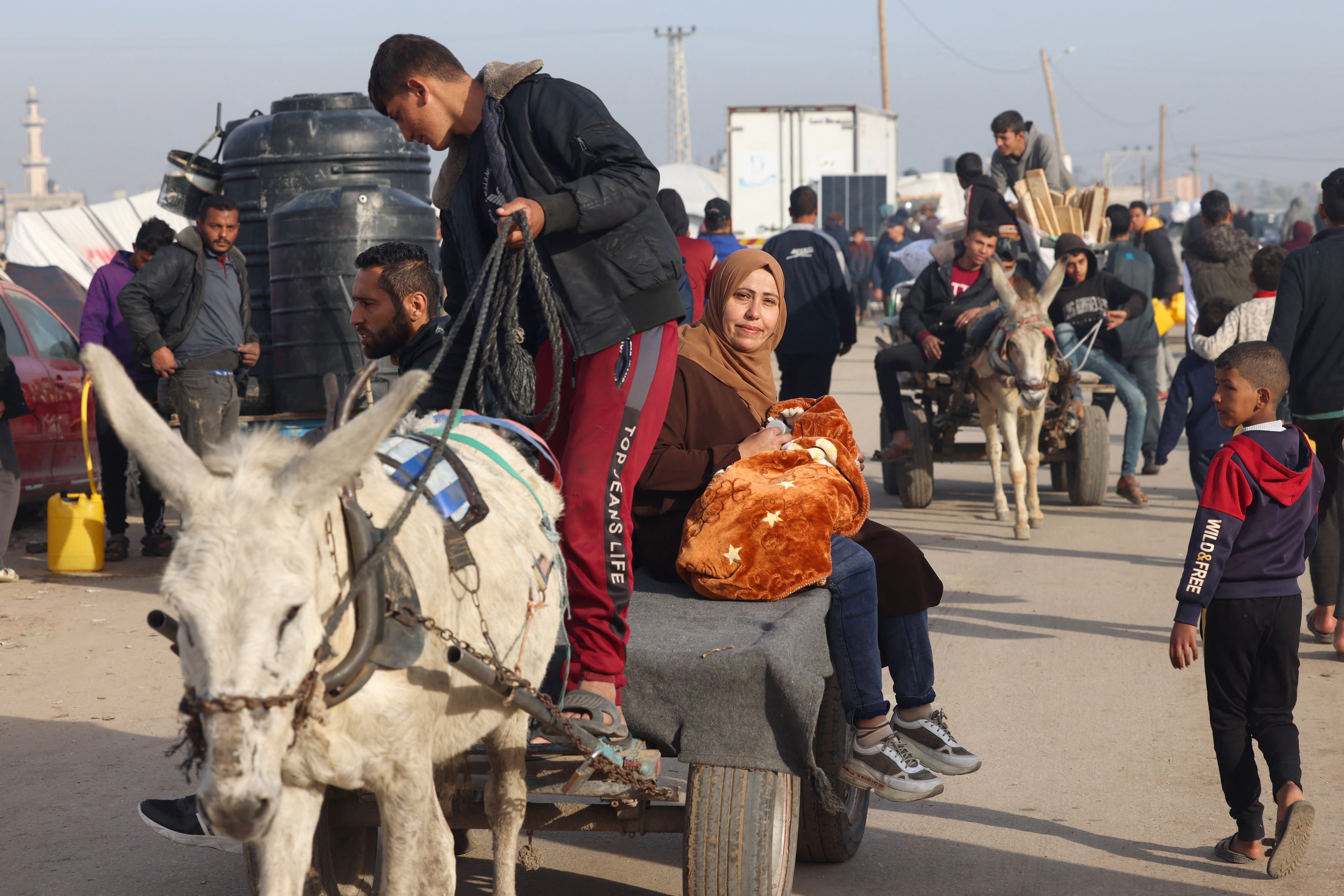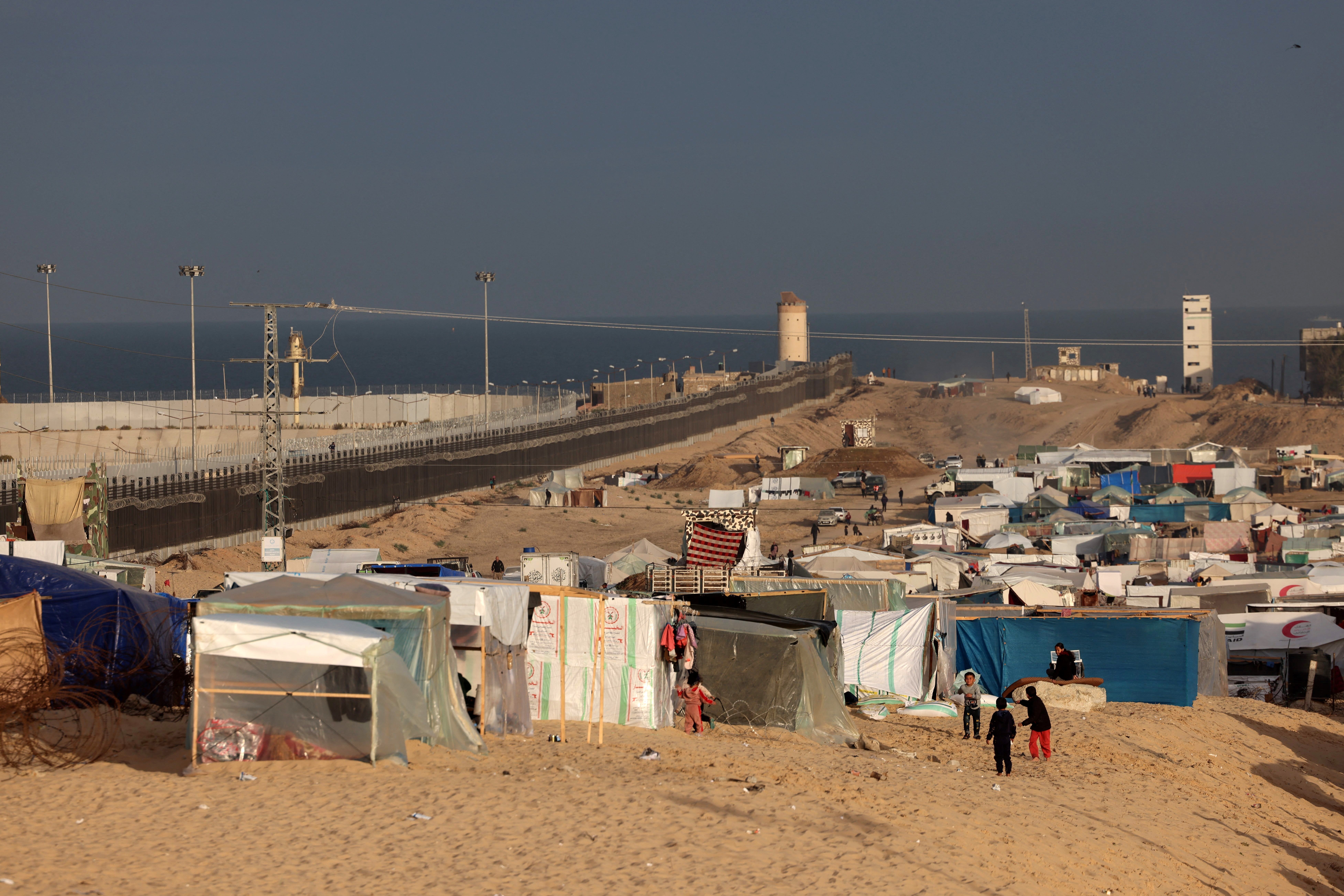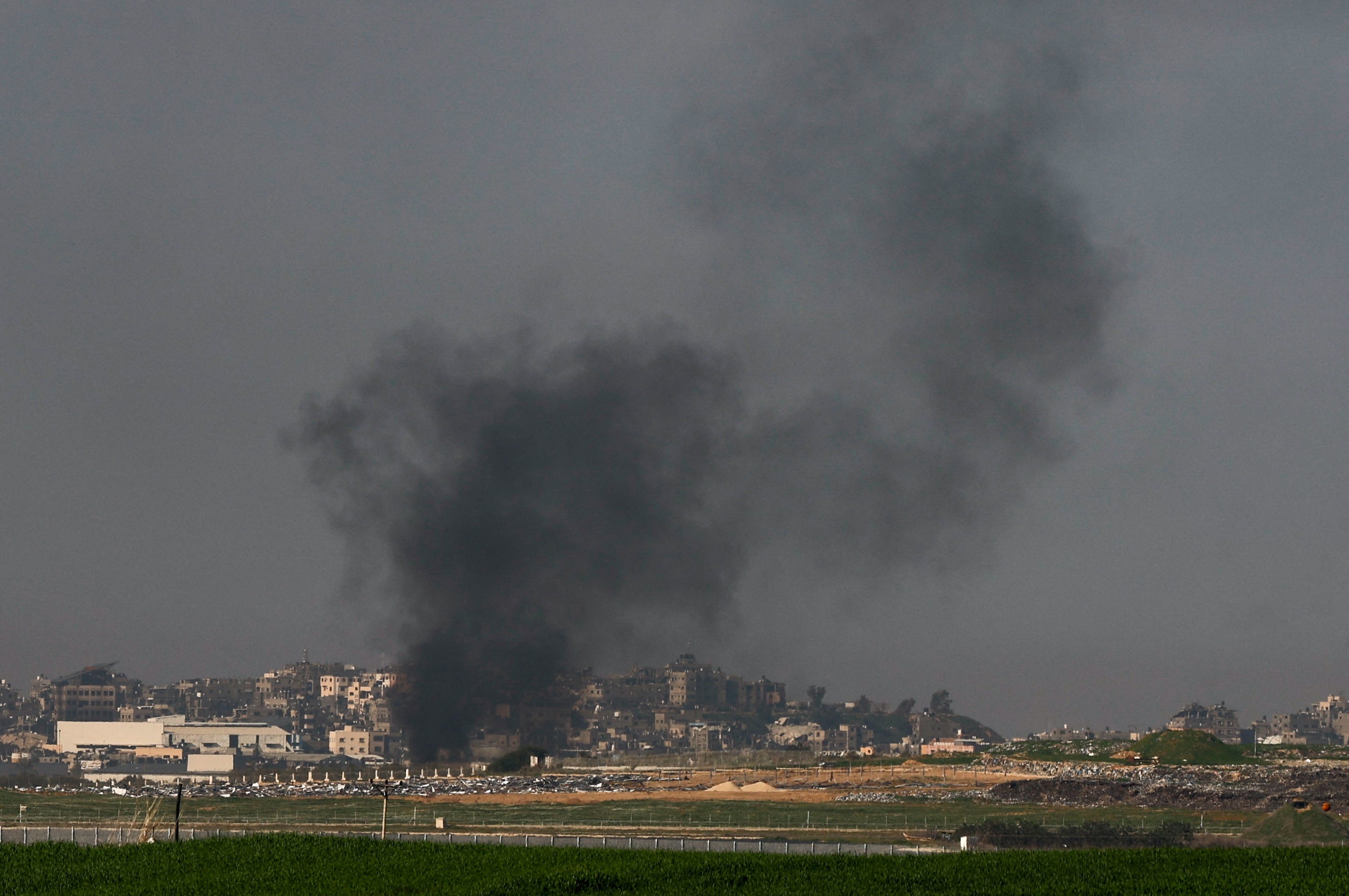Death toll in Gaza soars above 25,000 as tensions in Middle East threaten to widen war
No end in sight for Israel-Hamas conflict as Tel Aviv vows to continue until group is ‘destroyed’

Your support helps us to tell the story
From reproductive rights to climate change to Big Tech, The Independent is on the ground when the story is developing. Whether it's investigating the financials of Elon Musk's pro-Trump PAC or producing our latest documentary, 'The A Word', which shines a light on the American women fighting for reproductive rights, we know how important it is to parse out the facts from the messaging.
At such a critical moment in US history, we need reporters on the ground. Your donation allows us to keep sending journalists to speak to both sides of the story.
The Independent is trusted by Americans across the entire political spectrum. And unlike many other quality news outlets, we choose not to lock Americans out of our reporting and analysis with paywalls. We believe quality journalism should be available to everyone, paid for by those who can afford it.
Your support makes all the difference.More than 25,000 people have been killed in the Gaza Strip during Israel’s offensive there, as tensions continue to escalate across the region in the wake of an airstrike that killed an Iranian spy chief in Syria.
The Health Ministry in Gaza reported the figure as the Israel-Hamas war entered its 106th day, with there being no clear sign that the conflict will end soon.
And the fighting is threatening to overspill into a wider war involving Iran-backed groups in Lebanon, Syria, Iraq and Yemen that support the Palestinians.
In recent weeks relations between Israel and Iran have worsened further with senior Iranian and allied figures supposedly targeted by Israeli airstrikes in Syria and Lebanon – including on Saturday, when the intelligence deputy of the Iranian paramilitary Revolutionary Guard’s Quds Force was killed in Damascus.
Iran’s president Ibrahim Raisi has vowed revenge for the attack, which was followed by missiles fired at US forces based in Iraq by Iran-backed militants in the country, according to the US Central Command.

It comes as Hezbollah forces are involved in near-daily clashes with Israeli troops along the Lebanese border.
An Israeli airstrike on Sunday hit a car near a Lebanese army checkpoint in the southern town of Kafra, killing at least one person and injuring several others, Lebanese state media reported. The identities of those killed and injured were not immediately clear.
The United States, which has provided essential diplomatic and military support for Israel’s offensive, has had limited success in persuading Israel to put civilians at less risk and to facilitate the delivery of more humanitarian aid.
Israeli prime minister Benjamin Netanyahu has rejected US and international calls for post-war plans that would include a path to Palestinian statehood.
UN secretary-general Antonio Guterres called the refusal to accept a two-state solution “totally unacceptable”. Speaking on Sunday, he added: “The Middle East is a tinderbox. We must do all we can to prevent conflict igniting across the region.
“That starts with an immediate humanitarian ceasefire to relieve the suffering in Gaza.”
The war began with Hamas’s surprise attack into Israel on 7 October, in which Palestinian militants killed some 1,200 people, mostly civilians, and took around 250 hostages.
Israel responded with a three-week air campaign and then a ground invasion into northern Gaza that flattened entire neighbourhoods.

Gaza’s Health Ministry on Sunday said 25,105 Palestinians have been killed in the territory since 7 October, and another 62,681 have been injured. The ministry does not differentiate between civilians and combatants in its death toll but says around two-thirds of those killed were women and children.
The toll included the 178 bodies brought to Gaza’s hospitals since Saturday, ministry spokesperson Ashraf al-Qidra said. Another 300 people were injured in the past day, he added.
Israeli ground operations are now focused on the southern city of Khan Younis and built-up refugee camps in central Gaza dating back to the 1948 war surrounding Israel’s creation.
“The plumes of smoke from tanks, artillery and the planes of the air force will continue to cover the sky over the Gaza Strip until we will achieve our goals,” defence minister Yoav Gallant said.
Israel continues to carry out airstrikes throughout the besieged territory, including areas in the south where it told civilians to seek refuge. Many Palestinians have ignored evacuation orders, saying nowhere feels safe.
UN officials say a quarter of Gaza’s population of 2.3 million is starving as only a trickle of humanitarian aid enters because of the fighting and Israeli restrictions.
Mr Netanyahu has vowed to keep up the offensive until Israel achieves “complete victory” over Hamas and returns all remaining hostages.
Hamas is believed to be holding the captives in tunnels and using them as shields for its top leaders. Israel has managed to rescue just one hostage, and Hamas says several have been killed in Israeli airstrikes or during failed rescue operations.
A member of Israel’s war cabinet, former army chief Gadi Eisenkot, said last week the only way to free the hostages is through a ceasefire. In an implicit criticism of Mr Netanyahu, he said claims to the contrary amount to “illusions”.
But Mr Netanyahu’s far-right coalition partners push him to step up the offensive, with some calling for the “voluntary” emigration of hundreds of thousands of Palestinians from Gaza and the re-establishment of Jewish settlements there.
Hamas has said it will not free more hostages until Israel ends its offensive. The group is expected to make any further releases conditional on securing freedom for thousands of Palestinians imprisoned in Israel, including high-profile militants involved in attacks that killed Israelis.
Israel’s government has ruled that out for now, but it faces growing pressure from families of the hostages, who are pushing for an exchange like the one that took place during a week-long ceasefire in November.
Join our commenting forum
Join thought-provoking conversations, follow other Independent readers and see their replies
Comments